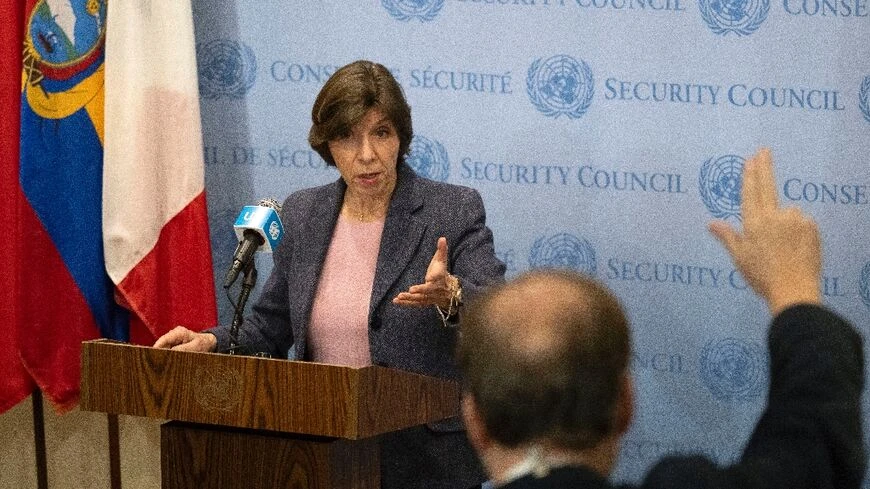'Neutrality' issues found at UN agency for Palestinians, but no terrorism proof

Stay tuned with 24 News HD Android App

An independent review group on the UN agency for Palestinians found some "neutrality-related issues," its much-anticipated report said Monday, but it noted Israel had yet to provide evidence for incendiary allegations that staff were members of terrorist organizations.
The United Nations Relief and Works Agency (UNRWA) remains "irreplaceable and indispensable to Palestinians' human and economic development" added the 54-page report, which was led by French diplomat Catherine Colonna.
The review group was created following allegations made by Israel in January that some UNRWA staff may have participated in the October 7, 2023 Hamas attacks. In the weeks that followed, numerous donor states suspended or paused some $450 million in funding.
Many have since resumed funding, including Sweden, Canada, Japan, the EU and France -- while others, including the United States and Britain -- have not.
Congress passed a bill signed into law by President Joe Biden last month that blocks US funding until March 2025.
The freezes to the main aid organ in Gaza come as months of Israeli military operations have turned the territory into a "humanitarian hellscape," UN Secretary-General Antonio Guteres said recently, with its 2.3 million people in desperate need of food, water, shelter and medicine.
Colonna's team was tasked with assessing whether UNRWA was "doing everything within its power to ensure neutrality," while Guterres activated a second investigation to probe Israel's allegations.
Despite a robust framework for ensuring it upheld the humanitarian principle of neutrality, the review found that "neutrality-related issues persist," including instances of staff sharing biased political posts on social media and the use of a small number of textbooks with "problematic content" in some UNRWA schools.
But it added "Israel has yet to provide supporting evidence" for its claim that UNRWA employs more than 400 "terrorists."
"What needs to be improved will be improved," Colonna, who was the French foreign minister until January, told reporters during a briefing.
"I'm confident that implementing these measures will help UNRWA deliver on its mandate, and I would strongly encourage the international community to be side-by-side with the agency so it can perform its mission."
"The Secretary-General accepts the recommendations contained in Ms. Colonna's report," Guterres' spokesperson said.
Social media posts
The review found that the majority of neutrality breaches related to social media posts, often following incidents of violence affecting colleagues or relatives, the review found.
"One preventive action could be to ensure that personnel are given space to discuss these traumatic incidents," said the report, which was co-authored with three Nordic rights groups.
It praised the progress made by UNRWA in preventing biased texts from being used in its schools, which are critical to educating hundreds of thousands of Palestinian children.
However, it cited a recent assessment that found 3.85 percent of textbook pages contained content of concern.
These included "the use of historical maps in a non-historical context, e.g. without labeling Israel" referring to Israel as the "Zionist occupation" and "naming Jerusalem as the capital of Palestine."
The authors also identified concerns over the politicization of staff unions, which have "resisted management disciplinary actions" including on neutrality, and are male-dominated, despite the agency itself being gender-balanced.
They offered several recommendations including expanding the review of school texts, increasing meetings with donors to improve transparency, and increasing the number of senior international staff working in the field.
But dismantling UNRWA, as sought by Israel, would accelerate Gaza's slide into famine and doom generations of children to despair, the organization's head Philippe Lazzarini warned last week.
UNRWA began operations in 1950 and provides services to nearly 6 million people across Jordan, Lebanon, Syria, the Gaza Strip and the West Bank, including East Jerusalem.
